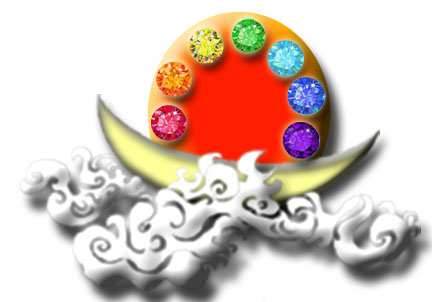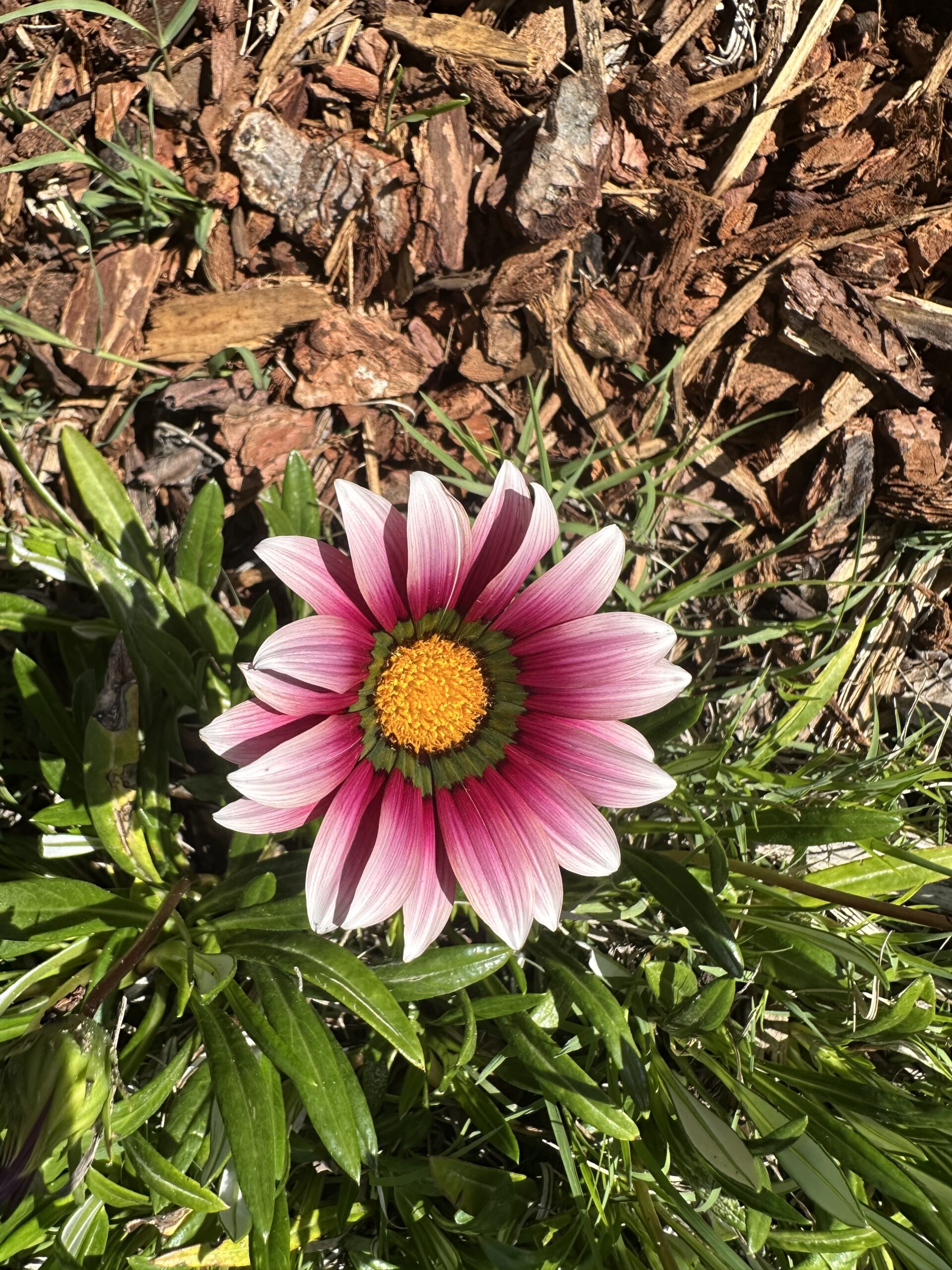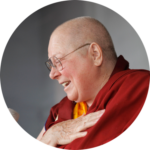
On February 10, 2024 we started DCB22- Expounding the Absolute Truth through the Text of the Heart Sutra-I by looking at the origins and meaning of Avalokiteshvara’s names. We learned that “unimpeded freedom and ease” is part of the name Avalokiteshvara and that each one of us should be like Avalokiteshvara, with perfect observation and hearing, and thus achieve unimpeded freedom and ease. Learning the Dharma of Avalokiteshvara Bodhisattva entails achieving the state of Avalokiteshvara Bodhisattva.
Does Your Mind Chang Phenomena or Does Phenomena Change Your Mind?
The Buddha Master tells us that:
“If your mind changes according to phenomena, then you are constrained by the five aggregates and all dharmas. As long as your mind changes according to and is tainted by phenomena, then if someone scolds you, you will immediately fly into a stormy rage. In this way, you change according to and are tainted by external phenomena. You are bound by the five aggregates and all dharmas and will forever transmigrate in saṃsara.”
However,
“If phenomena change according to your mind, then the five aggregates are empty and tranquil and have no function or use. As for the five aggregates of form, feeling, conceptualization, action, and consciousness, they will then naturally have no effect.”
What Is the Major Difference between the Mind of an Ordinary Being and That of a Buddha or Bodhisattva?
“The minds of all living beings have hindrances and are attached to the flow of defilements. Thus, they cannot attain unimpeded freedom and ease.The minds of all living beings, all beings that have life, have hindrances. What is meant by hindrances is the presence of differentiation and discrimination. That is, their mind consciousness differentiates. This is because the minds of living beings are not the same as the minds of Buddhas and Bodhisattvas. The mind of a living being is the mind of differentiation by the mind consciousness of an ordinary being. Buddhas and Bodhisattvas have a mind of enlightenment in accord with the ultimate truth and prajna. This is the mind of true thusness with marvelous applications of the ultimate truth. Therefore, this is the state of going from contemplative-illumination prajna to intrinsic-reality prajna.”
“You can imagine why living beings cannot gain unimpeded freedom and ease. Living beings use their deluded minds to differentiate. All day long they use their six sense bases—the eyes, ears, nose, tongue, body, and mind—to grasp onto and not let go of forms, sounds, smells, tastes, touches, and objects of mind. They then generate distress, suffering, happiness, joy, and gladness.”
“Thus, living beings are lost in and never withdraw from phenomena. They are lost even when sleeping. They are whirled around by these phenomena to the point where they are disoriented. They are slaves of the five aggregates, slaves of form, feeling, conceptualization, action, and consciousness. They live in greed, hatred, delusion, love, joy, anger, sorrow, and pleasure. These unliberated living beings live the entirety of their days in this manner. Ponder this now from your own experience. Is this the way that you live? That is why unimpeded freedom and ease is not attained. Of course, one cannot gain unimpeded freedom and ease. Being occupied with greed, hatred, delusion, love, joy, anger, sorrow, and pleasure all the time without ever taking a break, how could one be unimpededly free and at ease? One cannot be unimpededly free and at ease.”
The Buddha gives several examples to demonstrate these concepts including one He tells on Himself about phenomena following the mind and another on how Avalokiteshvara was able to demonstrate these powers when asked in the true story of Yu Jiayao in China.
Next
Next Saturday, February 17 at 9:00 am PST on ZOOM, we will continue our study of the first sentence in the Prajna Paramita Heart Sutra and discuss what we learned from Yu Jiayao’s story and other examples of how Avalokiteshvara saves living beings. We will probably also begin to study just what and who a Bodhisattva is and how they compare to an Arhat of a Pratyeka-buddha. We should be able to finish Lesson 8 by learning who is an “icchantika” and who are the four types of Buddhists and what good Buddhists should do.
Those of you enrolled in either the Buddhist Studies or the Xiuxing Seminary Programs may review the related discussion sessions held on DCB21. You really need to be able to understand the concepts and principles established in DCB21 where the Buddha Master explains all the terms in the title of The Prajna Parami-ta Heart Sutra to be able to fully understand the text of the sutra itself that we will study in Lesson 8 of DCB22-25 starting next week. You should review the Buddha Master’s teachings on “prajna” in course DCB21-Lessons 3, 4, & 5 taught early last year. You should review those zoom sessions recordings to gain an understanding of the three types of prajna. You should also make sure you understand “parami” and “ta” or “dhyana” In either DCB21-Lessons 6A & 6B or C41(A)-Lesson 6A and Lesson 6B.
TO DATE: DCB22-Expounding the Absolute Truth through the text of the Heart Sutra–I and C41-Three Principal Stages & Paths of Buddhist Practice
The recording of the February 10 class is now available. You must be enrolled in DCB22 in one of the membership programs at the LFBCS to access the course materials, questions covered (in parenthesis), and/or the class recordings. Please note that these links will only work if you are logged into LFBCS with your membership Identification number AND are enrolled in this class. Please note that Lessons 6A and 6B are part of Course C41.
“Avalokitesvara Bodhisattva, when practicing deeply the prajna-paramita, illuminated the five aggregates, saw that they are all empty, and crossed beyond all suffering and adversity.”
February 10, 2024: Lesson 8A-The Great Stage–Wisdom Path of the right view of emptiness, Expounding the Absolute Truth through the text of the Heart Sutra–I, “Avalokiteshvara”, (1-30) and (HERE) for recording of class.
February 3, 2024: Lesson 6B-The Great Stage–Wisdom Path of the right view of emptiness, Expounding the Absolute Truth through the Heart Sutra-Prajna & Dhyana(Ta), (355-369) and HERE for recording of class.
January 20, 2024: Lesson 6A–The Great Stage–Wisdom Path of the right view of emptiness, Expounding the Absolute Truth through the Heart Sutra-Prajna & Dhyana(Ta), (317-354) and HERE for recording of class.
CLICK for article on the entire text of Expounding the Absolute Truth through the Heart Sutra.
CLICK for article with instructions on how to enroll in LFBCS classes and how to register for the ZOOM discussions.





Add comment